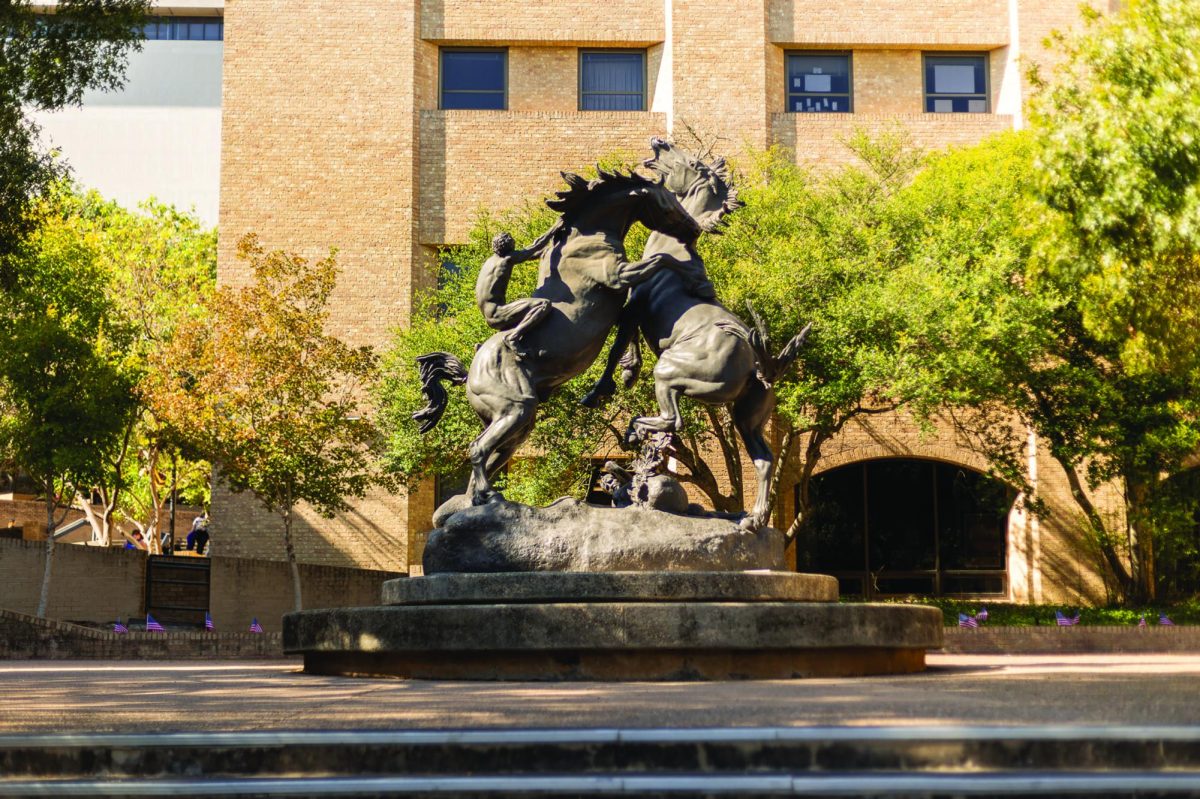Editor’s note: Here’s a Thought is an opinion series written collectively by The University Star’s opinion section. Opinions expressed are not necessarily those of our entire publication.
As the majority of students continue attending in-person classes throughout the pandemic, some have encountered an unexpected hurdle: professors.
Although students have noticed professors trying their best to make things work remotely, some have noticed instructors haven’t been as understanding in in-person classes.
The presence of COVID-19 is almost as dominant as it was around this time last year. On Oct. 1 of this year, there were 1,063 active cases in Hays County, compared to the 1,370 active cases on Sept. 30 of last year.
When not much has changed in terms of the presence of COVID-19 in the local area, it would be odd to assume that the effects the pandemic has had on students would have changed. We are still very much in a pandemic and cannot ignore that just because students have been forced to return to in-person learning.
Stephanie Hernandez, an international business senior, said the switch back to full capacity in-person classes has taken a toll on her academically, as she’s witnessed a lack of engagement between professors and their students.
“I feel like that’s what’s been affecting me more, because professors tell you to come to office hours, but it’s like they really don’t want you to just because of their health and stuff like that which like one has to respect,” Hernandez said.
COVID-19 has already impacted the academic performance of some students for the worse. Whether that be because of internet accessibility or personal issues, it doesn’t help to have apathetic behaviors from their instructors.
When the pandemic first began, students like DeeDee Carleton, a biology senior, figured it would be a temporary break from school. However, as the pandemic worsened it took a toll on her academically and mentally.
“As the year went on, and particularly this spring when I was taking a full load of classes virtually and working from home, I had a really hard time mentally,” Carleton said. “I managed to keep my grades up, but it was a struggle and I definitely struggled academically in a way I hadn’t before.”
To help students cope with the effects of the pandemic, departments on campus should consider implementing platforms where their students can express concerns. The College of Liberal Arts provides CoLA Concerns, an anonymous and student-run chat service where students in the department can share both their problems and ideas. Features like CoLa Concerns can make the transition back to in-person learning smoother for students who are having a difficult time adjusting.
The effects of the pandemic have also impacted the mental health of individuals across the nation. In April 2020, 13.6% of U.S. adults said they had serious symptoms of psychological distress, compared to the 3.9% reported in 2018. Those between 18-29 years old made up the group with the highest symptoms for this distress.
While other students like Maya Rojo, a psychology freshman, have not personally had any negative experiences on campus, they know someone who has.
“Based on my classes, most teachers have been [helpful], but some teachers aren’t willing to put things online,” Rojo said. “My friends, they had classes where attendance was mandatory, and you get points off for not being there even with COVID.”
Having mandatory attendance could be seen as teachers not being entirely understanding, especially when some classes have over 100 students in attendance. Students who do not feel comfortable with that many people being near them, as masks and vaccines are not required, should not be punished for missing class.
There also comes anxiety from receiving multiple Bobcat Trace messages throughout the week, which inform students that they’ve been in contact with someone who has tested positive for the virus.
A lack of understanding from professors can lead to putting instructors and students at risk, both academically and physically. Instructors should take into consideration that while there are some students eager to return to life pre-pandemic, there are also some who are anxious about the current state of the world and feel safer attending class from the comfort of their homes.
“I don’t think most professors are being understanding. Out of my professors, I think only two have really expressed the importance of communication, mental health and empathy toward students and situations,” Melissa Rueda, a marketing junior, said. “This is our first true semester back on campus. For many it’s almost been a whole year of not being on campus and I think professors even before the pandemic were a little more empathetic than they are now.”
As students continue navigating their college education amid a pandemic, professors need to be patient and understand we are trying out best. It’s not unreasonable to ask for a bit of compassion after many of us have lost loved ones to the virus or have battled it ourselves.
The University Star welcomes Letters to the Editor from its readers. All submissions are reviewed and considered by the Editor-in-Chief and Opinion Editor for publication. Not all letters are guaranteed for publication.
Categories:
Here’s a Thought: Instructors aren’t as understanding as they were earlier in the pandemic
October 5, 2021
0
Donate to The University Star
Your donation will support the student journalists of Texas State University. Your contribution will allow us to purchase equipment and cover our annual website hosting costs.
More to Discover








